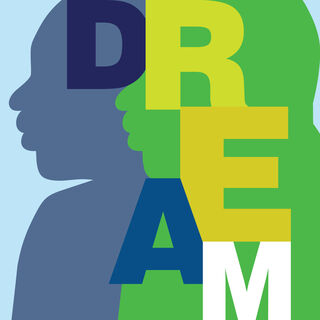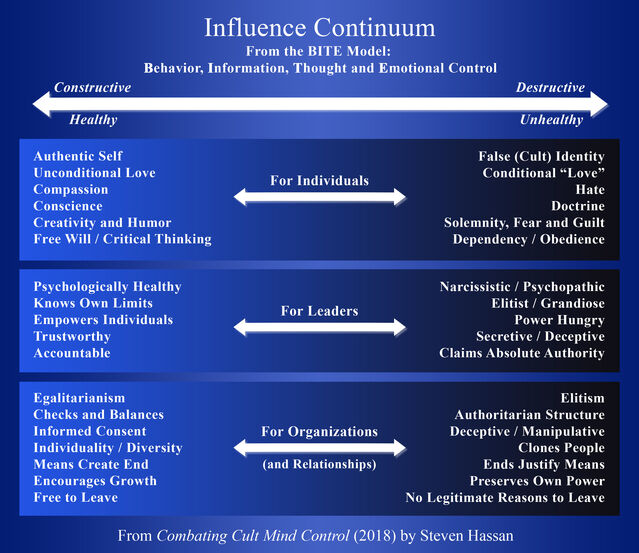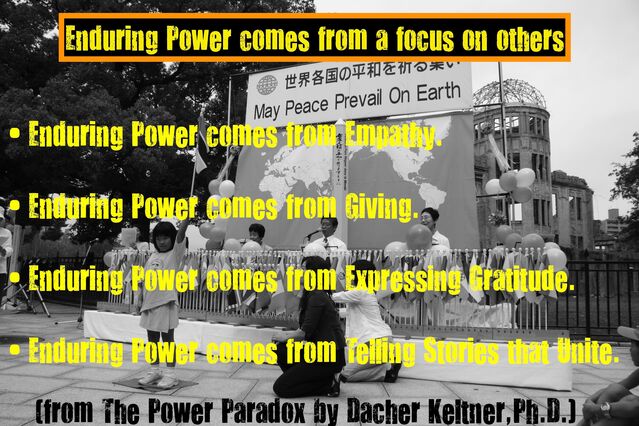Empathy
Which of Six Power Types Will You Embody and Support?
How does power challenge empathy and relatedness?
Posted September 15, 2022 Reviewed by Kaja Perina

Dr. Martin Luther King said, “Power without love is reckless and abusive, and love without power is sentimental and anemic. Power at its best is love implementing the demands of justice, and justice at its best is power correcting everything that stands against love.”
American and world cultures have long struggled with power, love and justice. Many of us struggle with these internally as well. How might we understand power and empowerment to help us as work-in-progress individuals and societies?
Power can be defined interpersonally as well as intrapsychically. In sociology, power is defined as the capacity to influence others. We can also think of what factors within our individual psyches have power and influence over us at any given moment. We can also think of what factors we’d like to empower and cultivate within ourselves, in our relationships, and in society.
Steven Hassan, Ph.D. has studied and written about cults extensively, most prominently in the bestselling book Combating Cult Mind Control. He has defined an influence continuum, from healthy to destructive, seen in the image below. On the far right, we see destructive or unhealthy influence, which uses control of behavior, information, thoughts, and emotions (the BITE model) to enforce hierarchical control and authoritarianism. On the left of the continuum, we see constructive and healthy influence, which is egalitarian and fundamentally interested in the well-being and growth of the individual, not in self-centered control over them and domination.

As a psychiatrist, I would observe that, broadly speaking, people tend to wield destructive influence under conditions of fear, threat, insecurity, and vulnerability that are uncoupled from self- and other-compassion. Healthy influences propagate under conditions of safety, love, and compassion.
Safety, love, and compassion help us deal productively with fear, threat, insecurity, and vulnerability. Valuing human dignity and equality would also push us towards the healthy end of the continuum. Those who have experienced good and safe relationships, and those who value individuals and institutions who provide good, safe and trustworthy relationships are likewise pushed towards cultivating the healthy forms of influence and interaction.
Still, we have to contend with different forms of power – most of which erode empathy, and thus erode relatedness, love and compassion. The desire to influence others and gain in prominence and power is at odds with having empathy. As Lord Acton wrote in the late 19th century, “power tends to corrupt, and absolute power corrupts absolutely.” Clearly, we need internal and interpersonal checks on power, as well as enhancing our societal amplifiers of empathy in order to keep society in the healthy part of the influence spectrum.
1. Gaining power through empathy
UC Berkeley social psychologist Dacher Keltner, in his research and his book The Power Paradox, verifies Lord Acton’s assessment. Keltner’s research suggests that groups grant trust, influence and power to individuals who show empathy for the group. However, as people gain power, they tend to lose empathy – hence the power paradox. So left to our own devices and without self-awareness and self- and interpersonal-regulation, we all have potential to migrate from healthy to unhealthy forms of influence and power.
2. Gaining power through talent
Clearly some are promoted to power and influence because they are talented in some domain. But this talent or skill does not always come with empathy or the wish to maintain empathy. Thus, some talented people act in selfish, unempathic, or otherwise injurious ways. Their talent may appeal to a faction, but they may cause harm to other factions. A quintessential example might be the very talented and respected department chair who sexually harasses trainees or junior faculty. A talented person might gain power and then abuse their power or use unhealthy influence to maintain power.
3. Gaining power through privilege
Some wield power because of their privilege. In American society, socio-economic, political and cultural advantages have been afforded especially to whites, especially those who are wealthy. Since power erodes empathy, some advantaged individuals might have little understanding or empathy for those outside their faction. As I wrote in a prior post (see references), we are all blinded by our ‘perspective bubbles’ and it actually requires emotional and intellectual labor to think beyond one’s group to see the greater good. A person with privilege might fight tooth-and-nail personally or team up with others in their faction to maintain their privilege. They have the privilege of turning their backs on the needs of others and thinking that others’ difficulties don’t affect them. They thus enhance the destructive forms of influence.
4. Gaining power through abuse
Others gain power through violence, force, fraud, deception, and other aggressive means to intimidate and silence any opposition and subordinate all members of their own faction to hierarchical control. Obviously, this lacks ethics and empathy. There are people who think that this criminal pathway is in fact the way of the world, thus justifying their behavior. Machiavellian power is a primary world example. These people and factions clearly use destructive influence, and leave a wake of damaged relationships and failed societies. (See the reference below from New Criterion describing Soviet, Bolshevik and Stalinist cruelty.)
5. Megalomanic power
Megalomania is the wish to dominate and control others, subordinating them to one’s own will. Control is defined as one’s agency in attaining one’s desired outcomes. Megalomaniacs use their agency to control others and strategize to achieve their desired outcomes. The megalomaniac and the Machiavellian take advantage of others to get what they want. The ends justify the means, and people become the used means - rather than being ends, and valuable, in and of themselves. As I’ve written before, “people who can’t control their own distress try to control others.” So my professional insight is that the megalomaniac is actually experiencing some kind of inner distress which drives them towards controlling and dominating others rather than relating to them in mutually beneficial ways. Clearly when we become “tools for their wiles,” empathy gets put on a far, far back burner if it's on the stove at all. When you feel your thoughts, needs, feelings, and identity are unimportant to someone else, it’s time to value yourself more and question how they might be using you. Do you know anyone who habitually exploits others for their own advantage?
6. Enduring power
Dacher Keltner defines enduring power as the power which continuously cultivates empathy and relatedness, as seen in the image below. This form of mutual empowerment continually advances self- and interpersonal regulation to enhance deeper health intrapsychically, within groups, and within society writ large.
Enduring power, he writes “comes from a focus on others.” Embodying and supporting this kind of power alleviates suffering and creates the conditions for belonging.
- Enduring power comes from empathy.
- Enduring power comes from giving. (I would modify this to “sharing.”)
- Enduring power comes from expressing gratitude.
- Enduring power comes from telling stories that unite.
To Keltner’s list, I would add a fifth quality of enduring power:
- Enduring power demonstrates the ability to apologize and make amends. Enduring power remains humble, and knows that it is possible to err and harm others, because we all operate from our own perspectives and can misunderstand others and devalue their needs in favor of our own. (For more on humility, see my last post.)
I hope this helps us stay focused on cultivating empathy and relatedness, and healthy, enduring forms of influence and empowerment that take us to our best potential as individuals and societies.
Stay tuned! I can’t wait to see how we manage what’s on our plate.
(c) 2022 Ravi Chandra, M.D., D.F.A.P.A.

References
For further reading:
Chandra R. Is “White Privilege” the Best Way to Talk About Racism? Psychology Today. June 18, 2020
Chandra R. Eight Types of Humility Needed for Cognitive Clarity. Psychology Today. September 8, 2022
Keltner D. The Power Paradox: How We Gain and Lose Influence. Penguin RandomHouse, May 2017.
Morson GS. How the great truth dawned: on the Soviet virtue of cruelty. New Criterion. September, 2019




